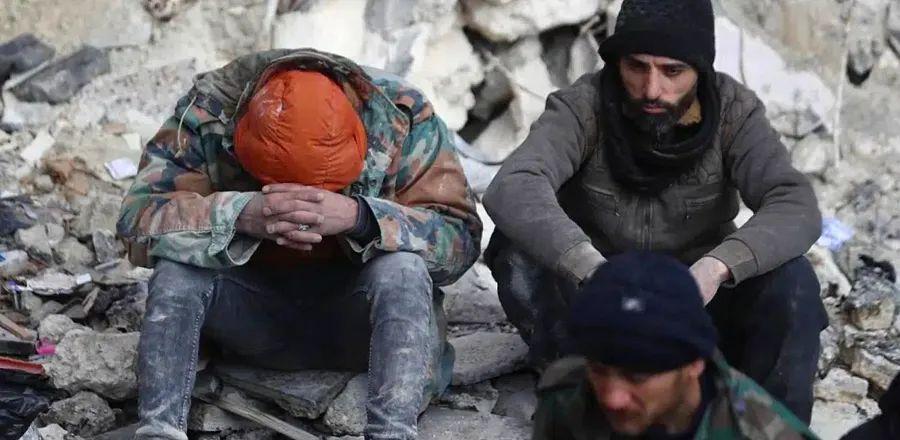How to Assist Türkiye and Syria After the Catastrophic Earthquakes

Rescue teams and emergency responders from across the globe arrived in Türkiye and Syria on Tuesday as the death toll climbed past 6,200 following a powerful 7.8 magnitude earthquake.
The earthquake struck southern-central Türkiye near the Syrian border around 4:15 a.m. local time on February 6, as reported by the U.S. Geological Survey (USGS), which monitors seismic activity worldwide. The agency highlighted that the initial quake and several aftershocks occurred at shallow depths, contributing to the intensity of the shaking.
“An earthquake of this magnitude can be destructive anywhere, but many buildings in this area are especially susceptible,” remarked USGS scientist David Wald. “Watching this disaster unfold is heartbreaking, particularly because we have long understood how poorly structures in the region perform during earthquakes.”
Numerous aftershocks have struck Türkiye and Syria
Approximately 30 aftershocks of magnitude 4.5 or higher have been recorded since the initial tremor, the strongest being a magnitude 7.5 quake that occurred nine hours later, about 60 miles north of the first.
According to USGS, only three earthquakes of magnitude 6 or higher have been documented in this region since 1970. Türkiye experienced another significant quake in January 2020, registering a magnitude of 6.7, which inflicted considerable damage in the eastern region. Additionally, a 7.4 magnitude earthquake struck near Istanbul in 1999, resulting in an estimated 18,000 fatalities.
Aftershocks are expected to persist in the area, which is known to be tectonically active, as noted by USGS, where three tectonic plates—those of Anatolia, Arabia, and Africa—converge and interact.
The devastation of fragile infrastructure
The epicenter of the February 6, 7.8 magnitude earthquake was located near Gaziantep, a significant city and provincial capital in Türkiye.
USGS scientist Kishor Jaiswal noted, "In contrast to newer buildings designed for modern earthquake standards, the recent earthquake affected many older structures in Türkiye, such as outdated concrete frames that lack seismic design features to withstand significant ground motion."
Following the earthquake, officials confirmed that thousands of buildings collapsed, including 'pancake' failures where the upper floors fell directly onto the lower ones, indicating a failure to absorb the shaking, according to Jaiswal.
Rescue operations have faced challenges due to freezing temperatures and traffic congestion caused by residents attempting to flee the quake-hit regions.
In Türkiye, over 8,000 individuals have been rescued from the debris, with around 380,000 seeking shelter in government facilities or hotels, as reported by Turkish Vice President Fuat Oktay. Many people have taken to social media to request help for loved ones believed to be trapped beneath the rubble, while Türkiye’s state-run Anadolu Agency relayed that Interior Ministry officials were meticulously collecting all calls and passing the information to rescue teams.
Turkish President Recep Tayyip Erdogan stated that 13 million of the country's 85 million citizens were impacted in some manner and announced a state of emergency in many areas of the nation.
In response to the influx of offers for assistance, Türkiye announced it would permit only aid-carrying vehicles to enter the severely impacted provinces of Kahramanmaras, Adiyaman, and Hatay to expedite relief efforts.
The United Nations has stated that it is "exploring all avenues" to deliver supplies to the rebel-held regions of northwestern Syria, where millions endure severe poverty and depend on humanitarian aid for survival.
A few months back, Dinogo highlighted how Syrian refugees have reshaped the food culture in Gaziantep, illustrating that identity and borders can be more fluid than we often perceive.
Gaziantep, along with many other cities and towns in the region, is now grappling with a significant humanitarian crisis.
For those who are watching, concerned, and seeking ways to help, we’ve compiled a list of organizations providing assistance to the victims of the Türkiye–Syria earthquake.
Ways to support Türkiye and Syria after the earthquakes

Photo by Khalil Hamra/AP
Doctors Without Borders/Médecins Sans Frontières (MSF)
- To make a donation: doctorswithoutborders.org
Commonly referred to by its French name Médecins Sans Frontières (MSF), Doctors Without Borders has deployed teams in northwestern Syria, where hospitals are inundated with tens of thousands of reported earthquake injuries. The organization provides emergency medical kits and bolsters healthcare facilities with additional medical personnel. They also supply blankets and essential life kits to displaced individuals in the region.
MSF reported, "The earthquakes have obliterated hundreds of homes, leaving thousands without shelter. Many people are forced to stay outside despite the snowfall, fearing ongoing aftershocks that have persisted throughout the day. Most of the injured are located in northern cities of northwest Syria, including Al-Bab, Afrin, and Azaz. MSF is supplying at least eight hospitals with trauma surgery essentials."
Oxfam
- To contribute: oxfamamerica.org
Oxfam is a global network of local organizations dedicated to combating inequality and ending poverty and injustice. The Oxfam affiliate in Türkiye has collaborated with approximately 80 women’s cooperatives across 10 Turkish provinces severely impacted by the earthquakes.
Meryam Aslan, Oxfam’s spokesperson in Ankara, stated, "Reaching survivors will pose significant challenges due to extensive damage or blockages on many roads and highways." She mentioned that Oxfam will focus on providing water, food, support, and shelter immediately following the disaster, along with rehabilitation and reconstruction efforts in the longer term.
Project Hope
- To contribute: projecthope.org
Project Hope, an international nonprofit organization dedicated to empowering healthcare workers and systems globally, has deployed emergency response teams to the impacted regions in Türkiye and Syria. They are assisting with the distribution of medicines, emergency kits, medical supplies, and participating in search and rescue operations.
Syrian American Medical Society (SAMS)
- To contribute: sams-usa.net
The Syrian American Medical Society (SAMS) reported, "Our hospitals are inundated with patients filling the hallways. There is an urgent need for trauma supplies and a coordinated emergency response to save lives and care for the injured," in their latest update following the catastrophic earthquakes in the region.
This global medical relief organization is actively engaged on the front lines of crisis relief efforts in Syria and surrounding countries.
The Turkish and Syrian Arab Red Crescents
- To donate: redcross.org
The global Red Cross and Red Crescent networks are delivering hot meals, water, tents, and blankets to those injured and evacuated in Türkiye and Syria. They are also collecting and sending blood and plasma donations to affected regions. Additionally, they are assisting in search and rescue efforts, providing first aid, conducting emergency medical evacuations, and transporting the injured to hospitals, while also offering psychosocial support to victims.
"As freezing temperatures and snowfall persist, the Turkish Red Crescent and Syrian Arab Red Crescent are tirelessly working to address the rapidly evolving needs on the ground as the devastation continues to unfold. Rescue teams are focusing their efforts in the hardest-hit areas where survivors remain trapped beneath the rubble," stated the Red Cross and Red Crescent networks.
Turkish embassy and consulates
- To donate: Contact the embassy or a local consulate
The Turkish embassy and consulates across the United States are accepting donations of blankets, tents, sleeping bags, pocket warmers, winter clothing, and over-the-counter medications for flu, cold, and pain relief, either by mail or through in-person drop-off.
The White Helmets
- To contribute: whitehelmets.org
Known officially as the Syria Civil Defense, the White Helmets are a dedicated group of humanitarian volunteers providing assistance to those in need "regardless of their religion or politics... in a place where public services have ceased to function." Currently, 3,000 White Helmets are actively working in Syria, searching for survivors in the rubble and transporting the injured to hospitals despite freezing conditions.
Reporting contributed by the Associated Press.
Evaluation :
5/5



